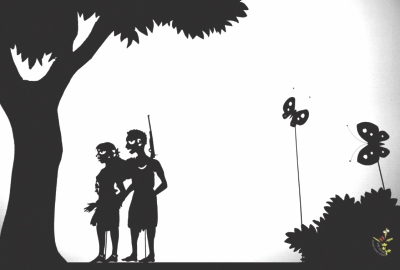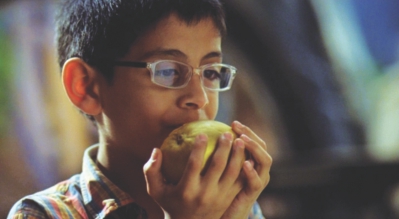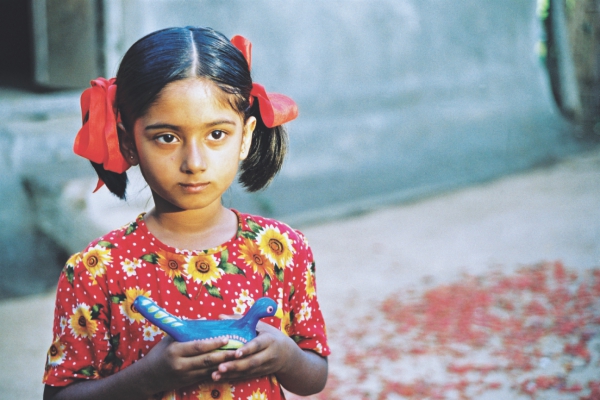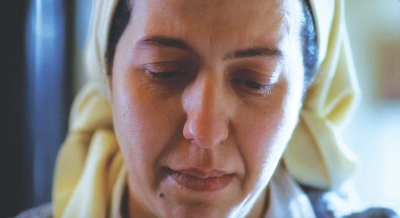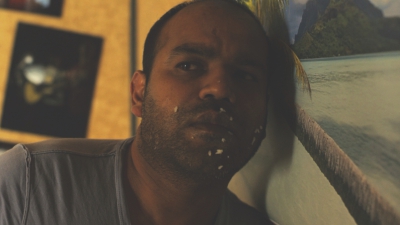| Home - Back Issues - The Team - Contact Us |
 |
| Volume 11 |Issue 49| December 14, 2012 | |
|
|
Film
Tall Tales of Short Expressions The Festival of Cinematic Creativity Turns Twelve Zakir Hossain Raju
Two toothbrushes. Together in a cup. Side by side. Sometimes face to face. Sometimes not looking at each other. Sometimes one brush is absent in the mug. These images build up a short film titled Shomporko (Relationship). The film tells us about a not-so-glorious life of a couple in contemporary Dhaka (or we so assume). I was lucky to watch it—and 24 other short films—as a member of the jury in the recently completed Inter-University Short Film Festival organised by North South University Cine and Drama Club. I was in good company as two other friends from the Short Film Forum days, AKM Zakaria and Golam Rabbany Biplob, were in the gang. I was surprised to see the breadth of the short films by youngsters from 21 different universities ranging from BUET to Stamford University. The issues they tackled varied greatly. Some focused on hartal and street urchins, some on gangsterism and drugs. For some, a moving dustbin in the city street, or a lost ball in the urban jungle inspired a flair of creativity on screen. All these tales were told by twenty-something aspiring filmmakers. Interestingly, when they were born, twenty years ago, the term 'short film' was almost non-existent for Bangladeshi film buffs. There were only 'poornodoirgho chayachobi' (full-length feature films) in cinema halls, and sometimes on the state-run BTV. The new term 'short film' came into being in the early 1980s. The term was brought into existence by two talented young filmmakers: Morshedul Islam and Tanvir Mokammel. Both of them took part in the film workshop conducted by late Alamgir Kabir at Bangladesh Film Archive and started shooting their own films. Morshedul's Agami (Towards) was released in 1984 and made history. Next year Tanvir's Huliya (Wanted) got released. Both these films were shot in 16 mm, in black and white, and with a shoestring budget. Both these little films brought in big themes like 1971 war of liberation and the mass protest of 1969 on screen when the country was under the autocratic rule of General Ershad. This was the time when such secular, nationalist thoughts were not to be discussed in public, as the nation took about turn to communalism and conservatism in service of an autocracy. Soon the short films became a filmic tool of protest against the right-wing autocratic rule. Morshedul and Tanvir were soon joined by a team of young filmmakers, each dreaming of recording the truth of the street and then taking it to the screen in their own voice. They, together with Tareque Masud and Enayet Karim Babul, formed Bangladesh Short Film Forum in August 1986. Late Alamgir Kabir who taught most of them at Film Archives was also advising them outside classes. Actually, as a mentor he was braver than his disciples and inspired his students to take up greater challenges. Kabir was a born optimist, he always found optimism when and where there were no ray of hope for independent films especially at that era of autocratic rule.
With Kabir's active encouragement, the young Turks started planning an international short film festival to be hosted by Short Film Forum in late 1987. By that time, more aspirant filmmakers including Manzare Hassin, Abu Sayeed, Tareque Shahriar, Zahidur Rahim Anjan, Junaid Halim, Moynul Huda, AKM Zakaria and this author joined the team. The first international short film festival actually took place a year later, in December 1988. Instantly, it became a popular festival for the film and art lovers of Dhaka. From then on, every two years, the festival took place. This is the oldest international film festival that is regularly being held in Bangladesh for last two decades. With no major government or corporate sponsorship, the festival completed eleven sessions until 2010. This is a rare feat in a land where media, art and culture are now truly 'governmentalised' and corporatised especially in the last decade or so. With a modest budget, a group of dreamers—some of whom are from the 1980s-90s—continue to struggle against all the odds to make the festival happen.
By the time this piece will get published, the 12th edition of the International Short and Independent Film Festival Dhaka will begin at its usual places—Public Library and National Museum. It will be inaugurated on the 13th December and will go until the 19th. This time the festival is dedicated to two of its original founders: late Tareque Masud and Mishuk Munier—who both died in a tragic road accident in August 2011. From this year, a special award in the name of Tareque Masud will also be instituted. Tareque's films will be screened on the 16th December for four sessions, and in the evening Catherine Masud will talk about Tareque and his films. A truly cinematic feast is on the platter for local cinephiles during the whole week. Around 200 short and feature-length films from 30 countries will be featured representing both contemporary trends and historical strands of independent film practices worldwide. The festival will pay homage to four veteran filmmakers who died recently. They are: Chris Marker, Theo Angelopolous, Eric Rohmer and Mani Kaul. With the generosity of the French Embassy, an outstanding non-fiction storyteller Chris Marker's eight films will be showcased for Dhaka audience for the first time. Selected films of Greek master Angelopolous, French maverick Rohmer and Indian film-philosopher Mani Kaul will also be screened. In the festival, while our young, aspirant filmmakers will fight for Tareque Shahriar Best Independent Short Award with short films under 10 minutes, international filmmakers will compete for the Best Feature and Best Documentary Award. Non-fiction film practices always get a strong focus in this festival. Alongside, Asian independent documentary session, this time the festivals like Film South Asia from Nepal and Docedge from Kolkata sent specially curated contemporary documentaries for the Dhaka festival. Not only for your eyes, there are events for your brain too. There will be three different lectures and seminars. Alamgir Kabir Memorial lecture started after the untimely death of Kabir in 1989 has taken place in each festival. Luminaries like Christof Janussi, Mrinal Sen, Aparna Sen, Gaston Roberge and Kumar Shahani presented this lecture on different years. This time the lecture will be presented by Nestor Jardin, President of Cinemalaya, a leading organisation of independent filmmakers in Philippines. He will speak on the recent trends in Asian Cinema at Bangladesh Shilpakala Academy on December 11 and 15. At the same place on December 17, film enthusiasts will join in a round table to discuss the possible ways of designing a National Film Policy. On December 19, Indian academic and filmmaker Shohini Ghosh will present a seminar on women's image in South Asian cinema at British Council Auditorium. The festival aims to widen our horizon of world cinema as well as our world view. Ten short films from Burundi Film Centre and two from Trinidad and Tobago that are to be shown in the festival is part of this effort. May I ask how many of us have watched a film from Burundi or Trinidad? I haven't. So I will be there looking for these films. With these and other short films on screen, I am sure I will find more stories of toothbrushes coupled together (or not) that will tell me more truths about my own life. The writer is Associate Professor in Media and Communication at Independent University, Bangladesh (IUB) and Vice-President of Bangladesh Short Film Forum and an activist of the independent cinema movement in Bangladesh.
|
||||||||||||||||
Copyright
(R) thedailystar.net 2012 |

